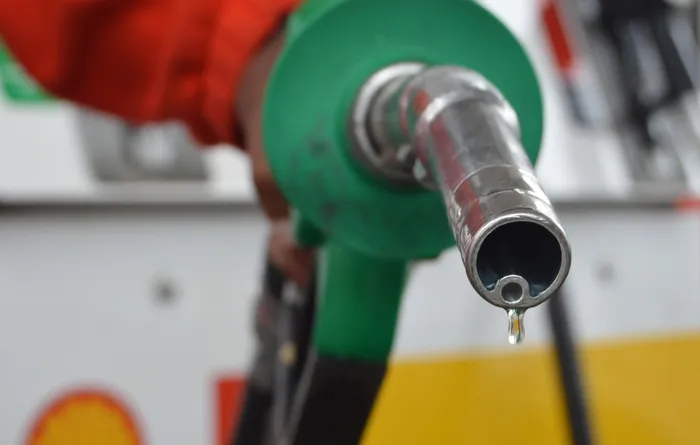E-hailing drivers, scholar transport body decry fuel price hike

South African E-Hailing Association national spokesperson Vhatuka Mbelengwa said the fuel price increase would affect operations and that the price of rides had already gone up. The price of both grades of petrol has gone up by 28 cents. | Tumi Pakkies African News Agency (ANA).
Durban - Another fuel price increase of 28 cents in both grades of petrol, that came into effect yesterday, might appear marginal, but data from the AA shows the sharp rise in the price of fuel since February last year.
Diesel 0.05% Sulphur has gone up by nine cents, while diesel 0.005% Sulphur decreased by a marginal 0.84 cents.
Information from the AA’s website indicates that the coastal price of petrol unleaded 93 per litre now stands at R20.73 while at the same time in February 2022, it was R19.37.
For petrol unleaded 95, with the latest fuel increase the coastal price is now R21.03 compared with R19.42 in February 2022.
A calculation shows that to fill a 55-litre 4x4 petrol vehicle would now cost a consumer at the coast R1 156.65 for a full tank unleaded 95 compared with R1 068.10 in February 2022.
Layton Beard, spokesperson for the AA, said that the data was showing that price increases for international petroleum products was the main driver behind the rise in local fuel prices.
“While the strength of the rand against the US dollar is limiting these increases, any increases to fuel prices now – at a time when South Africans are grappling with, among other issues, financial pressures and rolling blackouts – is unwelcome. We again want to urge the government to revisit the fuel pricing structure with a view to finding ways to mitigate against this and other possible increases in future,” said Beard.
Professor Irrshad Kaseeram, of the University of Zululand’s Economics Department, said that the year-on-year increase had been about 7.7% which is above the inflation target of 6%.
“However, the series of increases in fuel price since the commencement of the Ukrainian war has already had a devastating impact on inflation and thus the prices have percolated throughout the economy. Last month saw a drop and this month roughly a reversal thereof. Over the next six months fuel prices are expected to remain relatively low due to a fall in demand brought on by a slowing down of the global economy despite China re-emerging into the global economy after Covid-19.”
South African E-Hailing Association national spokesperson Vhatuka Mbelengwa said the fuel price increase would affect operations and that the price of rides had already gone up.
“Fuel price increases affect our operating expenses. We are also facing challenges with load shedding which affects the apps for commuters to book. High fuel prices have resulted in us increasing our prices. We didn’t have a choice. An increase in prices discourages commuters from booking rides which makes it difficult for us as an industry to survive.
“What we need from the government is a stable fuel price, we can’t have the fuel price dropping and then before we can even benefit from it, the price goes up again.”
Ntokozo Khumalo, president of South African Scholar Transport Association, said the association had previously raised concern about the fuel price.
“There were nine increases in the fuel price last year and we had to raise our fares. Parents were complaining as they are struggling due to the Covid-19 pandemic and rising cost of living.”
South African Transport and Allied Workers spokesperson Amanda Tshemese said the situation was untenable.
“When the fuel price goes up, taxi fares will go up, it’s really bad. Food prices are ridiculous.’’
Related Topics: